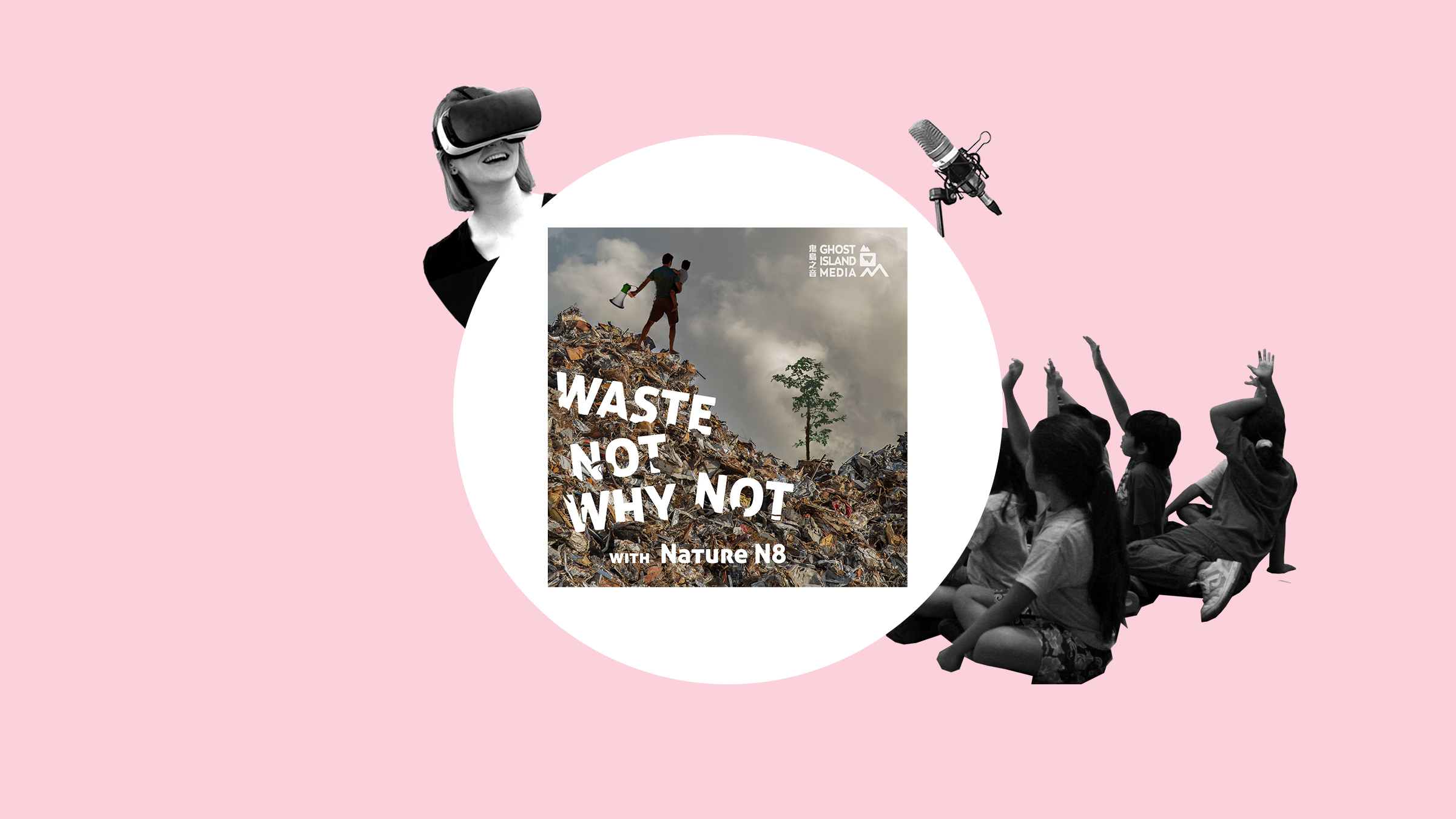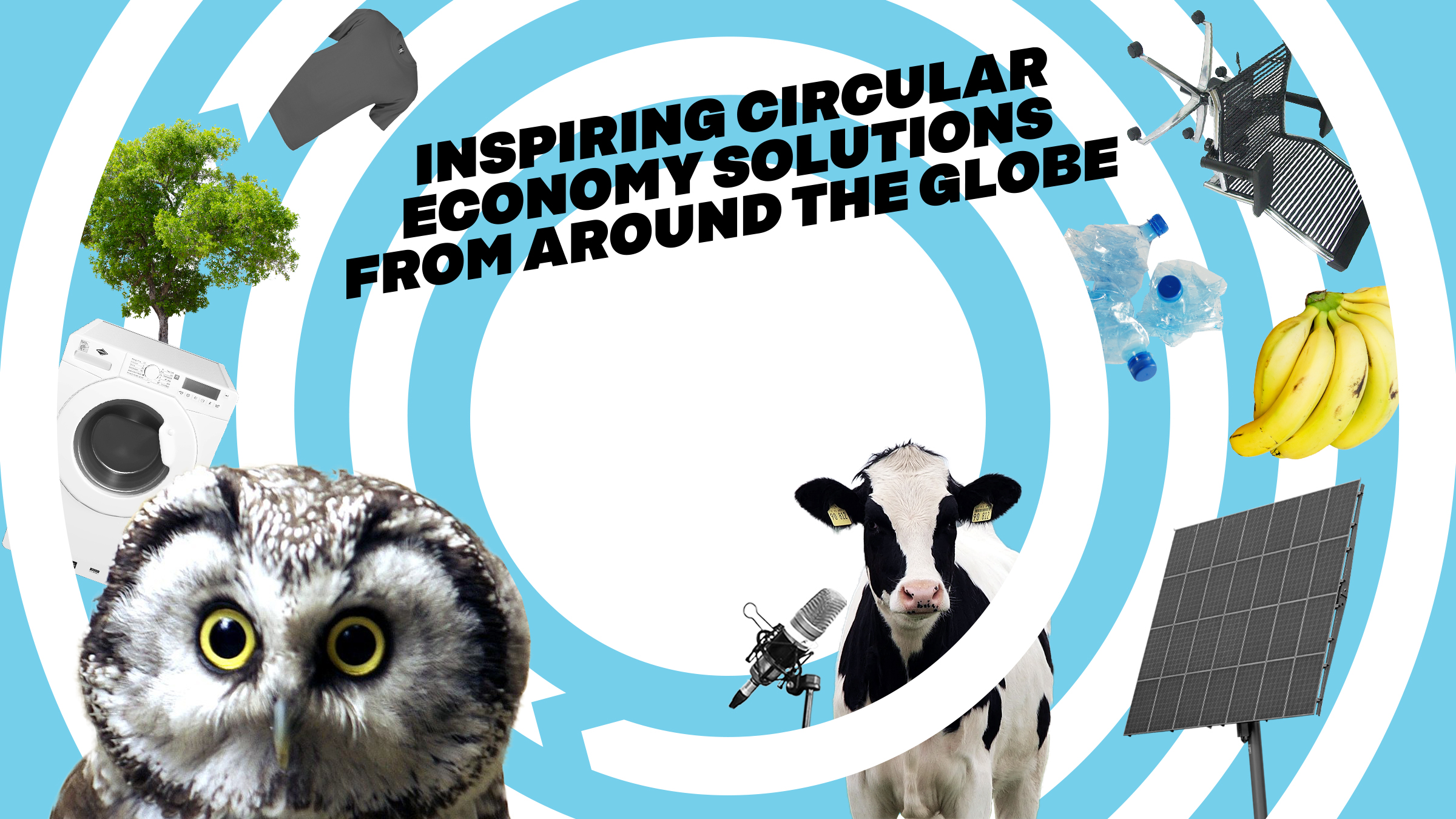The Waste Not Why Not podcast from Ghost Island Media makes circular economy ideas accessible to the general public. Targeted at listeners without any specialised circular economy education, the podcast aims to spread optimism for a circular world with stories about problem-solvers who are already building our circular future.
During his work in waste management, the podcast host Nate realised that there was an awareness gap on consumption and waste management issues among the general public. The podcast was started after Nate met Ghost Island Media’s producer. A tour of the West Coast of the US to interview scientists, organised in partnership with the American Association for the Advancement of Sciences, solidified the idea for the podcast.
Problem
Awareness of circular economy is often limited to specialists, hindering the adoption of circular consumer goods and careers. To illustrate, in September 2020, searching “circular economy” on Instagram brings 343,000 posts, while the tag #plasticfree has over 2.4 million hits. The problem is not a lack of existing inspiring solutions but one of communication, as few media sources exist to amplify circular stories.
Solution
The Waste Not Why Not podcast seeks to educate listeners on the best ways to help the environment with a specific focus on waste and the circular economy. The podcast team fills the circularity knowledge gap by making the science behind closing the loop fun and informative. The podcast hosts tell inspiring stories and feature scientists as guest speakers. The podcast currently has a few thousand listeners from Australia, New Zealand, Taiwan, the US, Hong Kong and the EU.
The solution’s target audience is English-speaking millennials, especially in the Asia-Pacific region where the circular economy remains largely unknown as a concept. Higher education programs remain relatively underdeveloped, and there are few opportunities for people to gain a deeper understanding of the topic. Offering free and entertaining information on the circular economy online satisfies a growing interest among young people in circular economy, on a personal consumption and policy level.
Environmental impact
There is a largely indirect positive environmental impact, stemming from behavioural change among consumers who listen to the podcast.
Social impact
The solution can have a social impact by improving access to education and knowledge of sustainable consumption choices. Especially among millennials, concern about the state of the world, known as climate anxiety, has been shown to be widespread and serious, so a podcast that empowers young listeners with a message of optimism yields a positive social impact.


Inspired?
Check out all solutions.